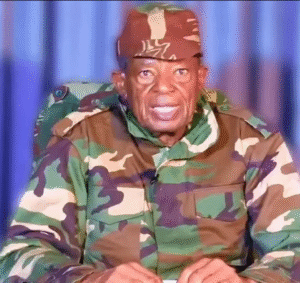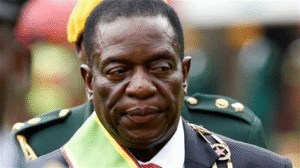THE SHADOWS OF POLITICAL FRAUD: DISRUPTION AND OPPORTUNISM IN ZIMBABWE’S LOCAL GOVERNMENT
In a brazen display of political maneuvering that has sent shockwaves through Zimbabwe’s political landscape, political activist Sengezo Tshabangu has once again wielded his influence to disrupt the main opposition, the Citizens Coalition for Change (CCC), in a move that has conspicuously benefitted the ruling party, ZANU PF. Tshabangu, who is seen as a political opportunist and backed by powerful securocrats and ZANU PF associates, has orchestrated the recall of Harare’s mayor Ian Makone and his deputy Kudzai Kadzombe, among other councillors.
Masquerading as the CCC interim Secretary-General, Tshabangu has executed his plot with a disturbing confidence that has left the opposition reeling. His request to the ZANU PF Local Government minister, Winston Chitando, to facilitate the recall of the duly elected councillors, is a stark reminder of the fragility of democratic structures in the face of political machinations.
The impact of Tshabangu’s actions has been profound. Initially, his machinations led to the recall of 15 Members of Parliament, which resulted in costly by-elections. This strategic move has not only destabilized the CCC but has also laid bare the vulnerabilities within the opposition party. The CCC’s somewhat disorganized organizational framework, marked by a lack of a formal political party structure, recognized office-bearers, an official constitution, and physical offices, has made it an easy target for such acts of political sabotage.
Tshabangu’s tactics are not just a blow to the CCC but to the very fabric of democratic governance. This calculated disruption serves as a grim reminder of the lengths to which political fraud and opportunism can undermine the will of the people. The recall of elected representatives through dubious claims and without due process disrespects the democratic choice of the citizens and the principles of elected governance.
The situation raises important questions about the state of democracy in Zimbabwe. How can a political party, purportedly operating under the guise of democratic norms, stand its ground when faced with such cunning and ruthless political strategies? The answer lies in the urgent need for the CCC to fortify its ranks, to establish a robust organizational structure that can withstand such blatant acts of political aggression.
Furthermore, the political landscape in Zimbabwe is marred by the legacy of such fraudulent activities, which have historically benefited those in power at the expense of the broader populace. The CCC, as a significant opposition force, has the monumental task of not only rallying its base but also ensuring that its internal mechanisms are impervious to such political exploitation.
The populace watches with bated breath as the CCC grapples with these challenges. It is a critical moment for the party to introspect and rebuild. The citizens’ trust in the political process hangs in the balance, and it is incumbent upon the CCC and other democratic forces to restore faith in the system. The survival of democratic values in Zimbabwe hinges on the opposition’s ability to counter such political fraud and to establish itself as a credible and resilient alternative to the status quo.
In the end, the machinations of Tshabangu and his ilk are not just an affront to the CCC but an attack on democracy itself. As Zimbabweans yearn for political stability and integrity, the true test will be in overcoming these shadows of political fraud and steering the country towards a future where governance is characterized by transparency, accountability, and the genuine representation of the people’s will.




